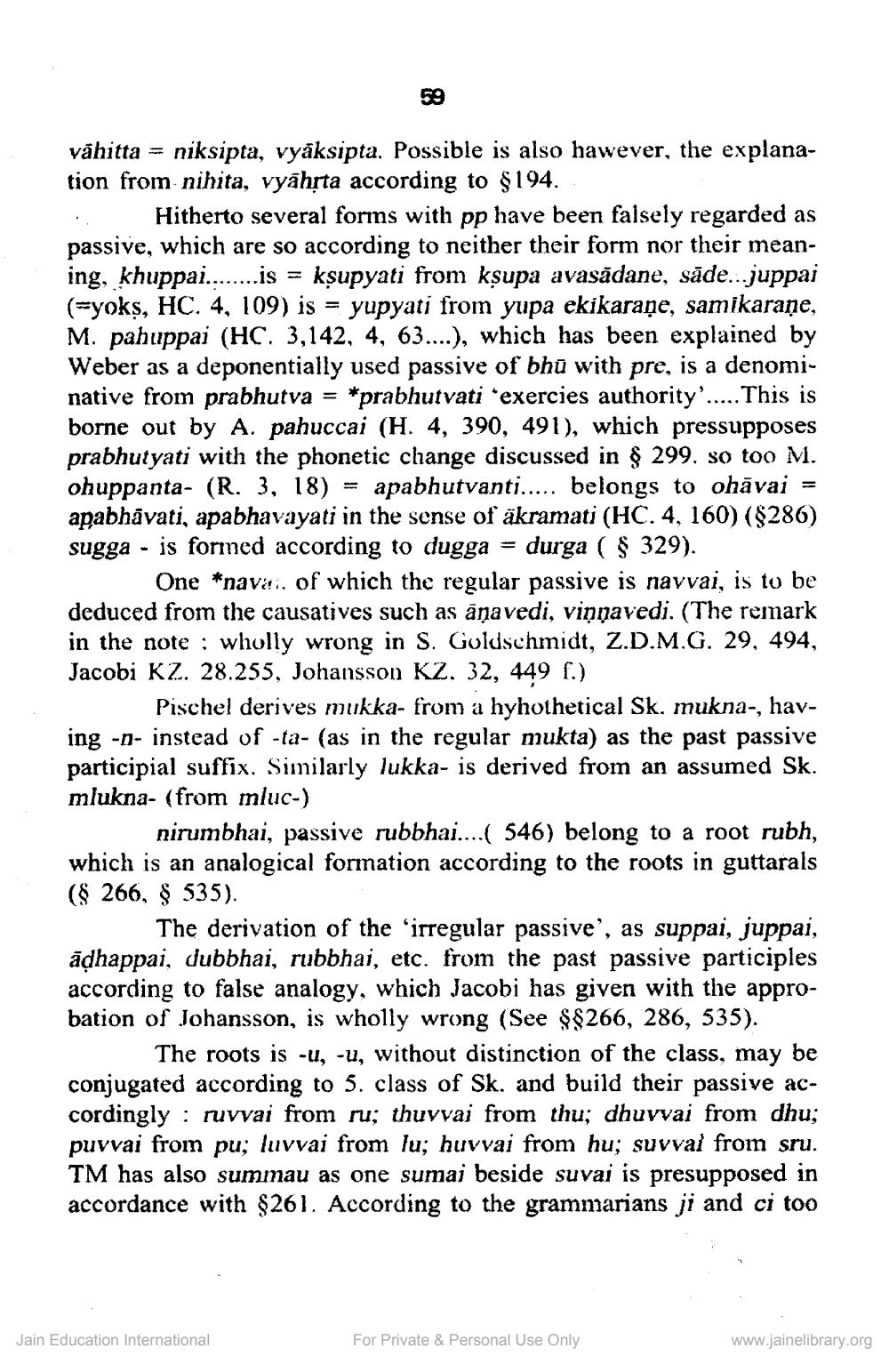________________
vähitta = niksipta, vyäksipta. Possible is also hawever, the explanation from nihita, vyāhrta according to $194. ... Hitherto several forms with pp have been falsely regarded as passive, which are so according to neither their form nor their meaning, khuppai........is = ksupyati from kşupa avasādane, sāde...juppai (=yoks, HC. 4, 109) is = yupyati from yupa ekikarane, samikarane, M. pahuppai (HC. 3,142, 4, 63....), which has been explained by Weber as a deponentially used passive of bhū with pre, is a denominative from prabhutva = *prabhutvati *exercies authority'..... This is borne out by A. pahuccai (H. 4, 390, 491), which pressupposes prabhutyati with the phonetic change discussed in $ 299. so too M. ohuppanta- (R. 3, 18) = apabhutvanti..... belongs to ohāvai = apabhāvati, apabhavayati in the sense of äkramati (HC. 4, 160) ($286) sugga - is formed according to dugga = durga (§ 329).
One *nava, of which the regular passive is navvai, is to be deduced from the causatives such as āņavedi, vinnavedi. (The remark in the note ; wholly wrong in S. Goldschmidt, Z.D.M.G. 29, 494, Jacobi KZ. 28.255, Johansson KZ. 32, 449 f.)
Pischel derives mukka- from a hyhothetical Sk. mukna-, having -n- instead of -ta- (as in the regular mukta) as the past passive participial suffix. Similarly lukka- is derived from an assumed Sk. mlukna- (from mluc-)
nirumbhai, passive rubbhai....( 546) belong to a root rubh, which is an analogical formation according to the roots in guttarals (8 266, $ 535).
The derivation of the 'irregular passive', as suppai, juppai, adhappai, dubbhai, rubbhai, etc. from the past passive participles according to false analogy, which Jacobi has given with the approbation of Johansson, is wholly wrong (See $8266, 286, 535).
The roots is -u, -u, without distinction of the class, may be conjugated according to 5. class of Sk. and build their passive accordingly : ruvvai from ru; thuvvai from thu; dhuvvai from dhu; puvvai from pu; luvvai from lu; huvvai from hu; suvval from sru. TM has also summau as one sumai beside suvai is presupposed in accordance with $261. According to the grammarians ji and ci too
Jain Education International
For Private & Personal Use Only
www.jainelibrary.org




